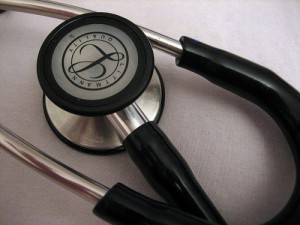 The following passage from J. Raymond DePaulo Jr.’s book, “Understanding Depression,” was helpful to me in knowing what to look for in a doctor, and when to go for a second (and third, and fourth, and fifth, and sixth, and seventh) opinion (My notes are in brackets):
The following passage from J. Raymond DePaulo Jr.’s book, “Understanding Depression,” was helpful to me in knowing what to look for in a doctor, and when to go for a second (and third, and fourth, and fifth, and sixth, and seventh) opinion (My notes are in brackets):
The best patient care requires three components: a well-trained, dependable clinician who knows what to do and is accessible to the patient; a well-informed patient who actively participates in his or her care plan and follows it; and a trusting alliance between doctor, patient, and family.
If you don’t understand or agree with a doctor’s diagnosis, you should ask for an explanation of how he or she came to the conclusion. What factors weight in favor of the diagnosis? What factors argue in favor of an alternative diagnosis? What possible diagnoses did the doctor consider before making this determination? What level of confidence does he or she assign to the conclusion? Optimally, you’d like to be 95 percent certain. It’s your obligation to educate yourself so you can better evaluate the doctor’s recommendations. You should also ask you doctor to tell you how he or she decided on the treatment plan. You can do outside reading and/or talk to other patients who have had experience with the same treatments.
If you don’t feel comfortable after this effort to clarify how good or risky the plan is, you should consider a second opinion. Whether you are a new patient or a returning patient, an inpatient or an outpatient, getting a second opinion shouldn’t be considered an insult to your doctor [unless they have major ego issues and studied psychiatry to figure themselves out…not that I know of any of those]. Many patients and their families worry that they’ll hurt a physician’s feelings or injure their relationship with their psychiatrist by requesting a second [or in my case, sixth] opinion. A second opinion can help you understand why your doctor has recommended your treatment and a second opinion may also help reassure you that the treatments are the safest and most effective. On the other hand, a second doctor might have ideas that will help your doctor get you the treatment you need faster….
If you don’t know of a consulting psychiatrist who specializes in conditions like yours, there are several sources you can turn to for a recommendation. You can ask your current doctor to recommend one [I disagree with that piece of advice, because bad doctors usually know each other], you can call a university or teaching hospital in your area [there you go, much better plan]; you can call the National Alliance for the Mentally Ill (NAMI) or the National Depressive and Manic-Depressive Association (NDMDA); or you can consult reference books that you can find in most libraries (including medical libraries), among them “The Best Doctors in America” and “Who’s Who in Engineering and Science.” A search on the internet can also prove useful [or ask fellow Beyond Blue readers]. Sometimes the best source of information proves to be a member of your family or a friend who has gone through treatment for depression.”
* Click here to subscribe to Beyond Blue and click here to follow Therese on Twitter and click here to join Group Beyond Blue, a depression support group. Now stop clicking.

